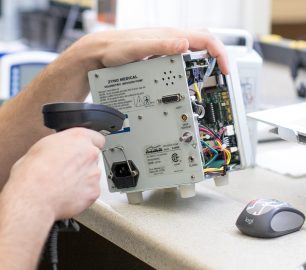What is the Cures Act of 2016?
The 21st Century Cures Act (also known as the Cures Act) was created to encourage innovation and bring new medical devices to market faster. The Cures Act passed both the U.S. House and the Senate by strong majorities before being signed into law on December 13, 2016, by President Barack Obama.
The wide-reaching law authorized $6.3 billion in funding, mostly allocated to the National Institutes of Health. It contains provisions that address the acceleration of biomedical research and faster approval of new drugs and medical devices.
Under the Cures Act, the FDA established the Breakthrough Devices Program to give medical device developers a more effective process for receiving feedback from the FDA during the premarket clearance process. In December 2018, FDA issued final guidance for this program.
The Breakthrough Devices Program was created so that patients in need would have faster access to these medical devices. This especially applies to treatments for diseases and conditions that have no other FDA-cleared or -approved alternatives.
How does the Cures Act affect infusion services?
Despite support for its focus on encouraging new treatments, other provisions in the Cures Act could create disadvantages for patients and providers of home infusion therapy (HIT) services.
Part of the law included changes to Medicare HIT reimbursement. A new reimbursement model is scheduled to be implemented by the Centers for Medicare & Medicaid Services (CMS) in 2021. However, the law’s Section 5004 significantly reduced HIT reimbursement by ending coverage of associated service costs.
Because a payment system for HIT is delayed until January 2021, this created a “care gap” between 2017 and 2021. Physicians, physician groups, medical associations, and patient advocacy groups responded by calling on lawmakers to change the Cure Act provisions that created this gap.
Amendments came under the Bipartisan Budget Act of 2018, signed into law by President Donald Trump on February 9, 2018. Under this act, a temporary, transitional payment is made to eligible home infusion suppliers for HIT services provided from January 1, 2019, until implementation of the Cures Act’s full HIT benefit.
CMS makes separate temporary transitional payments for HIT services to eligible HIT suppliers. The payments cover the cost of items and services furnished in coordination with
administration of certain transitional home infusion drugs administered through durable medical equipment (DME).
Both the Cures Act and the Bipartisan Budget Act created payment only for drugs covered under the External Infusion Pump local coverage determination. This does not apply to Medicare Part D infused drugs, parental nutrition, enteral nutrition, or intravenous immunoglobulin. The temporary payments also do not include changes to DME billing.
The acts allow home infusion providers to bill for professional HIT services only on the day that a professional or nurse is present in the patient’s home. Because this does not account for other services performed as part of the HIT process, this rule could potentially decrease reimbursement for HIT providers and hinder the patient’s ability to receive infusion therapy in the comfort of their own homes. The National Home Infusion Association (NHIA) is currently working with lawmakers to change this in-home requirement to allow for more frequent reimbursement of HIT services.
What other areas does the Cures Act affect?
Besides the impact on treatment innovation and HIT, the Cures Act touches on several other aspects of U.S. healthcare.
Home Health Visit Mandates: Under the Cures Act, states are mandated to implement electronic visit verification for all Medicaid personal care services and home health services that require an in-home visit by a provider.
Health IT Interoperability: Under the Cures Act, the U.S. Department of Health and Human Services (HHS) and the Office of the National Coordinator for Health Information Technology must create plans to improve health IT interoperability.
Mental Health Care: The Cures Act incorporated the Helping Families In Mental Health Crisis Act, passed by the House in July 2016. This bill increased the availability of hospital beds for people needing short-term psychiatric hospitalization.
HIPAA Privacy Rules: The Cures Act calls for the Secretary of HHS to issue “Guidance Related to Streamlining Authorization” under HIPAA. This concerns an individual providing authorization for researchers to use and disclose his or her protected health information (PHI). The guidance must clarify when the authorization sufficiently describes the purpose of the PHI’s use or disclosure.
Addressing the Opioid Crisis: States received grants totaling $1 billion over 2 years under the Cures Act to help counteract the opioid epidemic.
The Cures Act is expected to have a wide-ranging impact on U.S. healthcare. Providers and payers may want to keep an eye on developments to learn what new treatment options are available to patients, and what other areas of the act have been implemented.
About Right Way Medical
Right Way Medical provides supply, logistic, technology, biomedical and financing solutions to alternate site, long-term care and specialty pharmacy healthcare providers through an innovative suite of products and services combined with the highest level of customer service. Founded in 2014, Right Way Medical has become a trusted name in the infusion industry, and focuses everyday to continue to earn that trust and provide its customers with the ideal experience in acquiring healthcare related products and service.
Contact us today to talk about how you can get started with our service and financing options.



